Rapid weight gain is not just a cosmetic concern; it can indicate underlying health issues, hormonal imbalances, or lifestyle factors that need your attention. Whether you’ve noticed your clothes getting tighter in a short span of time or you’ve seen a sudden number spike on your weighing scale, rapid weight gain can be both alarming and frustrating. In many cases, conventional dietary advice or rigorous exercise routines alone might not offer the quick or sustainable results you’re looking for. That’s where natural herbs for weight loss can come into play, offering additional support and a holistic approach to shedding unwanted pounds.
In this in-depth guide we’ll explore everything you need to know about natural herbs for weight loss and how they can help you address rapid weight gain. We’ll discuss the potential causes of sudden weight gain, why natural and herbal approaches might be beneficial, and how to incorporate these herbs into your daily routine safely and effectively. By the end, you should have a comprehensive understanding of how to manage your weight more sustainably using nature’s own solutions.
Table of Contents
1. Understanding Rapid Weight Gain

Before diving into natural herbs for weight loss, it’s crucial to understand what rapid weight gain actually means. Rapid weight gain typically refers to a noticeable, relatively sudden increase in body weight over a short period days or weeks rather than over months or years. While some fluctuation in body weight is normal (due to water retention, hormonal changes, or variations in daily calorie intake), a significant jump that doesn’t subside can be cause for concern.
- Common Examples of Rapid Weight Gain
- Gaining 5 to 10 pounds in a matter of days or a couple of weeks.
- Experiencing swelling or puffiness in certain areas of the body, indicating water retention or inflammation.
- Suddenly outgrowing clothing that fit comfortably just a few weeks prior.
- Potential Health Implications
- Hormonal Dysregulation: Conditions like hypothyroidism or polycystic ovary syndrome (PCOS) can lead to a slow metabolism and sudden weight changes.
- Cardiovascular Risks: Unchecked weight gain can put stress on the heart and circulatory system, increasing the risk of hypertension and other cardiovascular issues.
- Metabolic Syndromes: Rapid weight gain can exacerbate or contribute to metabolic syndrome, characterized by elevated blood sugar, high cholesterol, and increased waist circumference.
- Psychological Impact: Surging weight can also impact mental health, lowering self-esteem and potentially leading to stress or anxiety.
- Why Focus on Addressing It Early
- Weight gain that appears suddenly may hint at an underlying issue that will only worsen if left unattended. Addressing it early can prevent further complications.
- Quick intervention can help reestablish metabolic balance and reduce the likelihood of insulin resistance or further hormonal imbalances.
It’s not enough to say “I need to lose weight.” Understanding the dynamics behind rapid weight gain whether water retention, hormonal imbalance, or excessive calorie consumption is an important first step toward choosing the right strategy. This guide will focus specifically on how natural herbs can complement a balanced lifestyle to help restore healthy weight levels.
2. Common Causes of Rapid Weight Gain

Rapid weight gain can result from a variety of factors, some of which may overlap. Identifying these causes is a vital part of determining the best steps to take, which could include natural herb supplementation.
- Overeating and Poor Dietary Choices
- Consuming excessive amounts of processed foods, sugary drinks, and refined carbs can lead to a sudden spike in calorie intake.
- Lack of dietary fiber from vegetables, fruits, and whole grains can slow digestion, leading to bloating and possible weight gain.
- Hormonal Imbalances
- Thyroid Issues (Hypothyroidism): A low-functioning thyroid gland slows metabolism, causing weight gain even when calorie intake remains moderate.
- Polycystic Ovary Syndrome (PCOS): Women with PCOS often experience rapid weight gain around the abdomen due to hormonal fluctuations and insulin resistance.
- Cortisol Spike (Stress Hormone): High stress levels can trigger the release of cortisol, which promotes fat storage, especially in the belly region.
- Water Retention and Inflammation
- High Sodium Intake: Excess sodium can cause the body to retain fluid, leading to a temporary but significant jump in body weight and puffiness.
- Inflammatory Conditions: Chronic inflammation due to stress, poor diet, or autoimmune disorders can also contribute to overall weight gain and water retention.
- Medications
- Certain prescription drugs, such as steroids or antidepressants, have side effects that promote weight gain by altering metabolism or increasing appetite.
- Beta-blockers, used for managing high blood pressure, can also slow your metabolism and lead to gradual weight increase.
- Sedentary Lifestyle
- Rapid weight gain can occur when a previously active individual becomes less mobile, whether due to injury, a busy schedule, or habit changes.
- A drop in physical activity can lead to muscle loss and increased fat storage, especially if calorie consumption remains the same.
- Insufficient Sleep and Poor Sleep Quality
- Lack of sleep disrupts the balance of hunger hormones like ghrelin and leptin, potentially driving you to overeat.
- Insomnia or late-night snacking can compound caloric intake, fueling rapid weight gain.
- Genetic Predisposition
- Some people are genetically predisposed to weight gain, particularly when exposed to calorie surpluses or high-stress conditions.
- This doesn’t mean you are destined to be overweight, but it does mean you may need a more meticulous approach to weight management.
- Post-Pregnancy Changes
- Postpartum women often experience hormonal fluctuations that can lead to unexpected weight changes, beyond the usual postpartum weight retention.
Understanding these root causes helps pave the way for targeted interventions. For instance, if your rapid weight gain is primarily due to water retention, focusing on herbs with diuretic properties (like dandelion) might be helpful. On the other hand, if the issue is a sluggish metabolism, thermogenic herbs like cayenne pepper or ginger could be more suitable.
3. Why Consider Natural Herbs for Weight Loss?

The use of herbs for weight management isn’t a new concept. Many cultures worldwide, including those following Ayurveda, Traditional Chinese Medicine, and other holistic traditions, have relied on plant-based solutions for centuries to maintain healthy body weight and overall wellness. But why should you consider natural herbs for weight loss when modern medicine and weight-loss drugs are readily available?
- Holistic Approach to Health
- Herbs often offer multiple benefits, such as improving digestion, reducing inflammation, or supporting hormonal balance. Rather than addressing weight gain in isolation, they aim to support overall wellness.
- A healthy body is more likely to self-regulate and maintain a stable weight over time.
- Fewer Side Effects
- Pharmaceutical solutions can sometimes lead to an array of side effects, including nausea, headaches, and in some cases, serious health risks.
- While herbs should still be used responsibly, especially under the guidance of a health professional, they often present fewer severe side effects when used properly.
- Long-Term Sustainability
- Herbal remedies tend to be more suited for gradual and sustainable weight loss, as opposed to quick fixes that might result in yo-yo dieting.
- Incorporating herbs into your daily routine can support long-term metabolic balance and healthy eating habits.
- Accessibility and Affordability
- Many weight-loss drugs can be costly or require continuous use. Herbs, on the other hand, can often be found easily, either in your kitchen (like ginger and cinnamon) or at a local health store (like green tea or Garcinia cambogia extracts).
- Once you know which herbs suit you, you can build them into your meals or use them as teas and supplements without significant expense.
- Cultural Legacy and Traditional Wisdom
- Traditional medicine systems such as Ayurveda and Traditional Chinese Medicine have used these herbs effectively for thousands of years.
- Scientific research increasingly validates many of these traditional uses, bridging the gap between ancient wisdom and modern science.
- Complementary to Conventional Treatments
- Herbs can be used alongside conventional weight-loss strategies—like balanced diets and exercise—to enhance overall results.
- In certain cases, they may help reduce reliance on high-dose medications, though always consult a healthcare provider before making changes to your treatment plan.
With the stage set, let’s delve into specific herbs that can help you manage or reverse rapid weight gain. Remember that the best outcomes typically emerge from a combination of herbal supplementation, a balanced diet, and an active lifestyle.
4. Top Natural Herbs for Weight Loss
In this section, we’ll explore some of the most researched and commonly recommended herbs that can aid weight loss. We’ll discuss their benefits, potential side effects, and practical ways to include them in your diet. Each herb has its unique properties, so it’s essential to choose one (or several) that aligns with your specific needs, be it boosting metabolism, reducing water retention, or curbing appetite.
Green Tea

Green tea is one of the most popular herbal remedies for weight loss, thanks to its high concentration of antioxidants called catechins, particularly epigallocatechin gallate (EGCG). These compounds can boost metabolism, support fat oxidation, and aid in the body’s overall detoxification process.
Key Benefits
- Thermogenic Effect: Green tea increases the body’s heat production, helping to burn more calories, especially when combined with regular exercise.
- Antioxidant Power: The catechins in green tea help combat oxidative stress, which, in turn, can reduce inflammation that contributes to weight gain.
- Appetite Regulation: Some individuals report feeling fuller after drinking green tea, potentially helping control portion sizes.
How to Use
- Brewed Tea: The simplest way is to brew one to two cups per day. Steep for about 3–5 minutes in hot water (not boiling) to preserve the antioxidants.
- Green Tea Extract: Available in capsule or powder form, which can be more convenient for people on the go. Check dosage guidelines on the label.
- Culinary Use: Matcha is a powdered form of green tea that can be added to smoothies, oatmeal, or baked goods.

Potential Side Effects
- Caffeine Sensitivity: Green tea contains moderate levels of caffeine, which can cause jitters or insomnia in sensitive individuals.
- Interaction with Medications: High doses of green tea extract can interact with blood thinners or other medications. Always consult a healthcare provider.
Garcinia Cambogia

Garcinia cambogia (also known as Malabar tamarind) is a tropical fruit commonly used in weight-loss supplements. Its active component, hydroxycitric acid (HCA), is believed to suppress appetite and inhibit fat production.
Key Benefits
- Appetite Suppression: HCA is said to increase the release of serotonin, a neurotransmitter associated with feelings of satiety and improved mood.
- Fat Blocking: Animal studies suggest that HCA may block an enzyme called citrate lyase, which the body uses to produce fat.
How to Use
- Supplement Form: Typically found as capsules standardized to contain a specific percentage of HCA. Follow label recommendations.
- Powder Form: Some products come in a powdered form that can be mixed with water or smoothies.
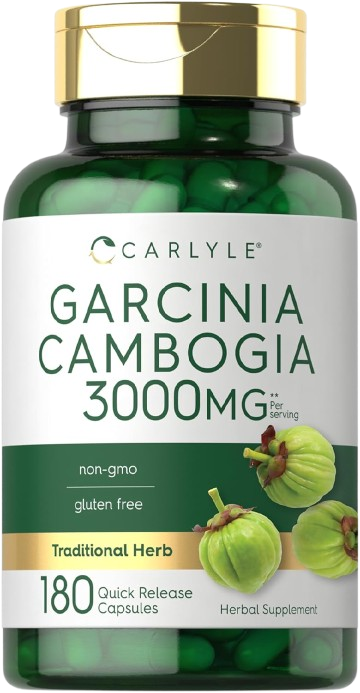
Potential Side Effects
- Digestive Discomfort: Some users experience nausea, diarrhea, or stomach cramps.
- Potential Liver Concerns: A few studies raised questions about potential liver damage with high-dose or prolonged use. Consult a healthcare professional before starting.
Cinnamon
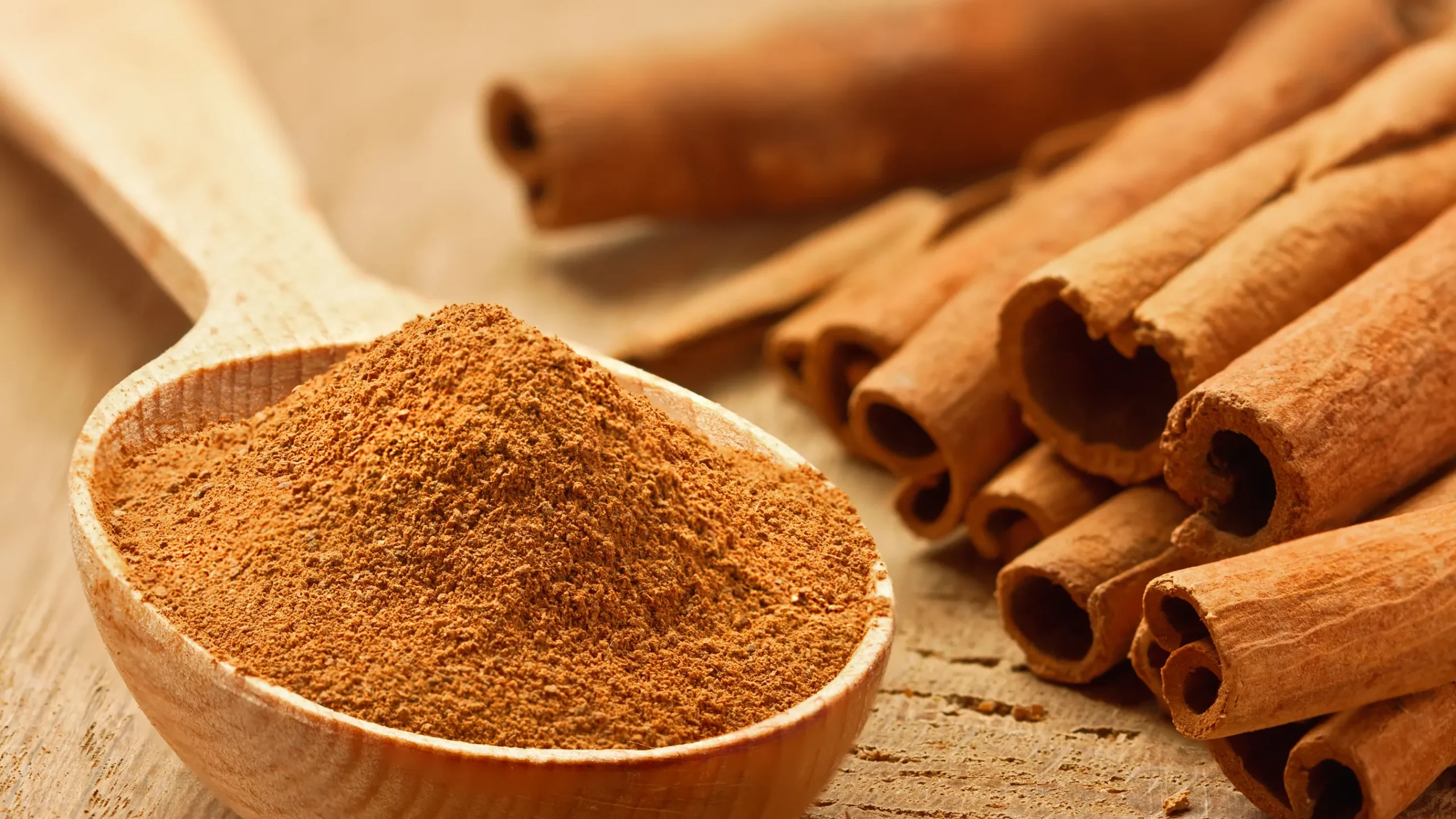
Cinnamon is a beloved spice worldwide for its sweet and warm flavor. Beyond culinary uses, cinnamon has been studied for its potential to regulate blood sugar levels, which can have a profound impact on weight management.
Key Benefits
- Blood Sugar Control: By improving insulin sensitivity, cinnamon helps stabilize blood glucose levels, reducing the urge for frequent snacking.
- Metabolism Boost: The spice may slightly increase the body’s metabolic rate, though more extensive research is needed to confirm.
- Anti-Inflammatory Properties: Chronic low-grade inflammation is linked to weight gain, and cinnamon’s anti-inflammatory compounds could help counter this.
How to Use
- Spice in Meals: Add cinnamon to oatmeal, yogurt, or smoothies. A teaspoon a day may be beneficial.
- Cinnamon Tea: Steep cinnamon sticks in hot water for a soothing beverage.
- Capsules: For more controlled dosing, cinnamon supplements are available in capsule form.

Potential Side Effects
- Coumarin Content: Cassia cinnamon (the most common variety) contains coumarin, which can be toxic to the liver in large quantities. Ceylon cinnamon has lower coumarin levels.
- Allergic Reactions: Rare, but watch for symptoms like mouth sores or irritation.
Ginger

Ginger has been a staple in traditional medicine for its anti-inflammatory and digestive benefits. It can help combat bloating and may boost metabolism through its thermogenic properties.
Key Benefits
- Enhanced Digestion: Ginger can help reduce bloating and improve gut motility, leading to more efficient nutrient absorption and less water retention.
- Thermogenic Effect: Like cayenne pepper, ginger can increase body heat slightly, promoting calorie burning.
- Appetite Control: Some research suggests that ginger can help make you feel fuller, reducing the urge to overeat.
How to Use
- Fresh Ginger Tea: Slice fresh ginger root and simmer in water for 10–15 minutes.
- Cooking and Smoothies: Add grated ginger to stir-fries, soups, or blend into your morning smoothie.
- Supplemental Forms: Capsule or powdered forms are readily available.

Potential Side Effects
- Stomach Irritation: In large amounts, ginger can cause heartburn or stomach upset in some individuals.
- Blood Thinning: Ginger may have a mild blood-thinning effect, so consult your doctor if you’re on anticoagulant medications.
Turmeric

Famous for its vibrant yellow color, turmeric is renowned for its active ingredient, curcumin. Known primarily as an anti-inflammatory agent, turmeric is increasingly studied for its potential role in weight management.
Key Benefits
- Inflammation Reduction: Chronic inflammation can disrupt hormonal signals that regulate appetite and fat storage. Curcumin can help lower systemic inflammation.
- Metabolic Support: Some studies suggest curcumin can influence fat metabolism and reduce the formation of adipose (fat) tissue.
- Supports Liver Function: Turmeric may support detoxification processes, aiding the liver in breaking down toxins and fats more efficiently.
How to Use
- Spice Mixes: Turmeric is a staple in curries and can be added to soups, stews, and stir-fries.
- Golden Milk: Combine turmeric with warm milk (dairy or plant-based), black pepper, and a touch of sweetener for a soothing beverage. The black pepper enhances curcumin absorption.
- Supplemental Form: Look for high-curcumin turmeric extracts formulated with piperine (from black pepper) for better bioavailability.

Potential Side Effects
- Gastrointestinal Issues: Excessive turmeric can cause stomach discomfort, bloating, or diarrhea in some people.
- Medication Interactions: Turmeric’s blood-thinning properties may interfere with anticoagulants, so consult your healthcare provider.
Fenugreek

Fenugreek seeds have a long history in traditional medicine for aiding digestion, balancing blood sugar, and supporting weight loss. The seeds are high in fiber, which can help control appetite.
Key Benefits
- Appetite Control: The soluble fiber in fenugreek can help you feel full, potentially reducing overall calorie intake.
- Blood Sugar Regulation: Fenugreek has been studied for its ability to improve glucose tolerance and reduce insulin resistance.
- Digestive Aid: Its fiber content aids in regulating bowel movements and supporting healthy gut bacteria.
How to Use
- Soaked Seeds: Soaking fenugreek seeds overnight softens them for easier consumption; they can be added to salads or taken on an empty stomach in the morning.
- Fenugreek Tea: Simmer seeds for about 5–10 minutes, strain, and drink.
- Powdered Form: This can be sprinkled onto dishes or taken in capsule form.

Potential Side Effects
- Allergic Reactions: Some people may experience skin rashes or breathing difficulties.
- Possible Gastrointestinal Issues: High intake can cause stomach cramps, gas, or diarrhea.
Dandelion

Often dismissed as a mere weed, dandelion has diuretic properties that can help reduce water retention—one of the key contributors to rapid weight gain in some individuals.
Key Benefits
- Diuretic Action: Helps flush out excess fluids and toxins, potentially reducing bloating and puffiness.
- Digestive Support: Dandelion root is known to support liver function, aiding in fat metabolism.
- Nutrient-Dense: Contains vitamins A, C, K, and minerals like iron, calcium, and magnesium.
How to Use
- Dandelion Tea: Brew the dried leaves or root to make a mild, earthy tea.
- Salads: Younger dandelion leaves can be added to salads for a slightly bitter, nutrient-rich green.
- Supplements: Capsules or extracts containing dandelion root are widely available.
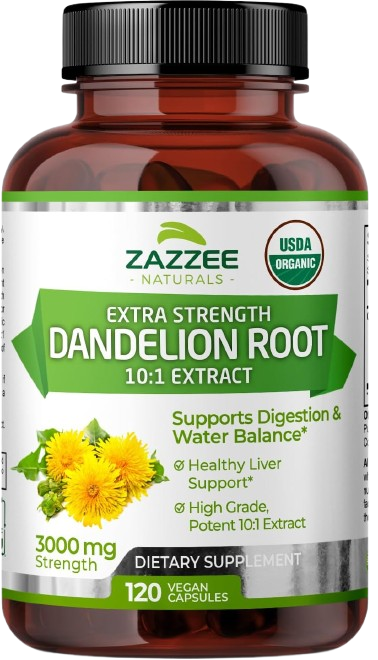
Potential Side Effects
- Allergic Reactions: Individuals with allergies to plants in the daisy family (like ragweed) should exercise caution.
- Dehydration: Overuse of diuretic herbs can lead to electrolyte imbalances and dehydration.
Hibiscus

Hibiscus, known for its tart flavor and vibrant red hue when brewed as tea, is another herbal remedy that may help manage weight by influencing metabolism and offering mild diuretic effects.
Key Benefits
- Diuretic Properties: Like dandelion, hibiscus can help reduce excess water weight by promoting urination.
- Metabolic Boost: Some research suggests hibiscus tea may help lower body fat percentage by influencing how the body breaks down lipids.
- Antioxidants: Rich in polyphenols, hibiscus can help reduce oxidative stress, which ties into better metabolic health.
How to Use
- Hibiscus Tea: Steep dried hibiscus flowers in hot water for 5–10 minutes.
- Iced Drink: Brew a concentrated hibiscus tea, then dilute with cold water and sweeten with a healthy alternative like stevia.
- Powder Form: Available for use in smoothies or as an ingredient in homemade jams and sauces.
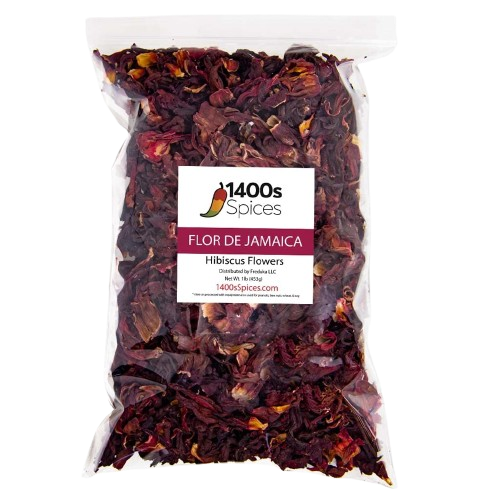
Potential Side Effects
- Blood Pressure Changes: Hibiscus can lower blood pressure, so those on antihypertensive meds should monitor their levels closely.
- Mild Stomach Upset: Some individuals experience stomach cramps or discomfort.
Ginseng

Ginseng, particularly Panax ginseng (Asian ginseng), is revered in Traditional Chinese Medicine for its adaptogenic properties—meaning it helps the body adapt to stress. This can indirectly support weight management by regulating stress hormones.
Key Benefits
- Energy Boost: By combating fatigue, ginseng can make it easier to maintain a more active lifestyle.
- Stress Reduction: Stress is a major contributor to weight gain; ginseng’s adaptogenic effects may help modulate cortisol levels.
- Metabolic Support: Some research suggests ginseng can improve insulin sensitivity and glucose metabolism.
How to Use
- Ginseng Tea: Slice ginseng root and steep in hot water for 10–15 minutes.
- Capsules or Extracts: These offer a convenient way to measure and control dosage.
- Powder Form: Ginseng powder can be added to soups or smoothies, although it has a distinctive, slightly bitter taste.
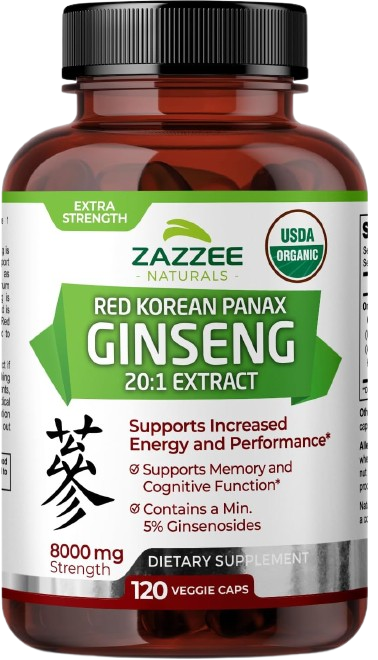
Potential Side Effects
- Insomnia or Jitters: Ginseng can be stimulating, so avoid taking it late in the day if you’re sensitive.
- Interaction with Medications: Ginseng can interfere with certain heart medications and diabetic treatments; consult a doctor.
Cayenne Pepper

Cayenne pepper contains capsaicin, the compound that gives chili peppers their characteristic heat. Capsaicin is known to possess thermogenic properties, helping increase metabolic rate.
Key Benefits
- Thermogenesis: Elevates the body’s internal temperature, which can enhance calorie burning.
- Appetite Suppression: Some individuals find that spicy foods help them feel satisfied with smaller portions.
- Improved Circulation: Cayenne pepper may improve blood flow, contributing to better nutrient distribution and waste removal.
How to Use
- Cooking: Add cayenne pepper to soups, stews, or sauces. A little goes a long way.
- Capsules: Available for those who prefer a more controlled dosage without the intense spiciness.
- Detox Drinks: A popular concoction involves cayenne pepper with lemon juice and warm water, sipped in the morning to jump-start metabolism.
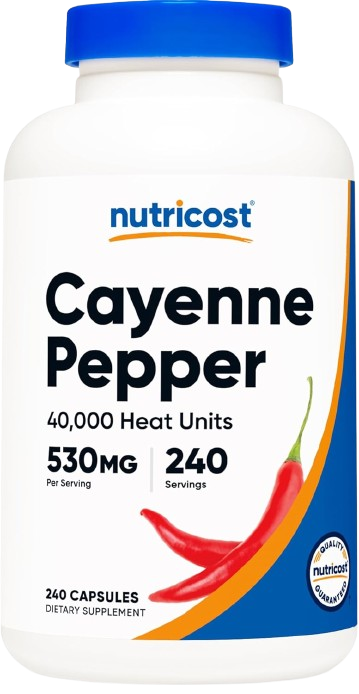
Potential Side Effects
- Digestive Irritation: The spiciness can irritate the stomach lining, causing discomfort or heartburn in some individuals.
- Allergic Reactions: Rare but possible; watch for itching, swelling, or respiratory issues.
Triphala’s Role in Weight Management

Triphala is a traditional Ayurvedic formulation comprising three fruits: Amla (Indian gooseberry), Bibhitaki, and Haritaki. Known for its detoxifying and rejuvenating properties, Triphala can assist in weight management by improving digestion and bowel regularity.
Key Benefits
- Digestive Aid: Triphala supports regular bowel movements and helps clear the digestive tract of toxins and waste.
- Metabolism Regulation: By promoting a healthy gut microbiome, Triphala can indirectly support metabolism and weight regulation.
- Antioxidant Effects: The three fruits in Triphala are rich in vitamin C and other antioxidants that combat oxidative stress.
How to Use
- Powdered Form: Often stirred into warm water and consumed, typically on an empty stomach in the morning or before bedtime.
- Capsules: A more convenient option for those who dislike the powder’s taste.
- Teas: Some health food stores carry Triphala-based teas.
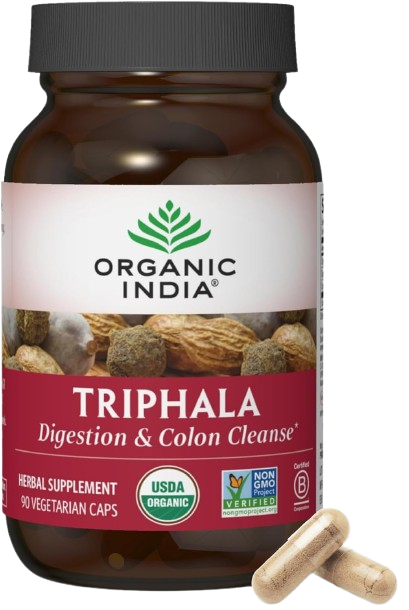
Potential Side Effects
- Mild Laxative Effect: Overuse can lead to diarrhea or cramping.
- Taste and Smell: The powder has a distinctive taste and smell that not everyone finds pleasant.
Other Promising Herbs
In addition to the primary herbs above, there are a few more worth mentioning:
Guggul (Commiphora mukul)

- Active Component: Guggulsterone, which may help regulate thyroid function.
- Benefit: Could assist in boosting metabolism when thyroid issues are present.
Coleus Forskohlii (Forskolin)

- Mechanism: Believed to stimulate the release of stored fat from fat cells.
- Benefit: May promote lean body mass and increase metabolic rate.
Caralluma Fimbriata

- Traditional Use: Historically consumed by tribal populations in India to suppress appetite during long hunts.
- Modern Findings: Preliminary studies suggest it can help reduce appetite and waist circumference.
Ashwagandha
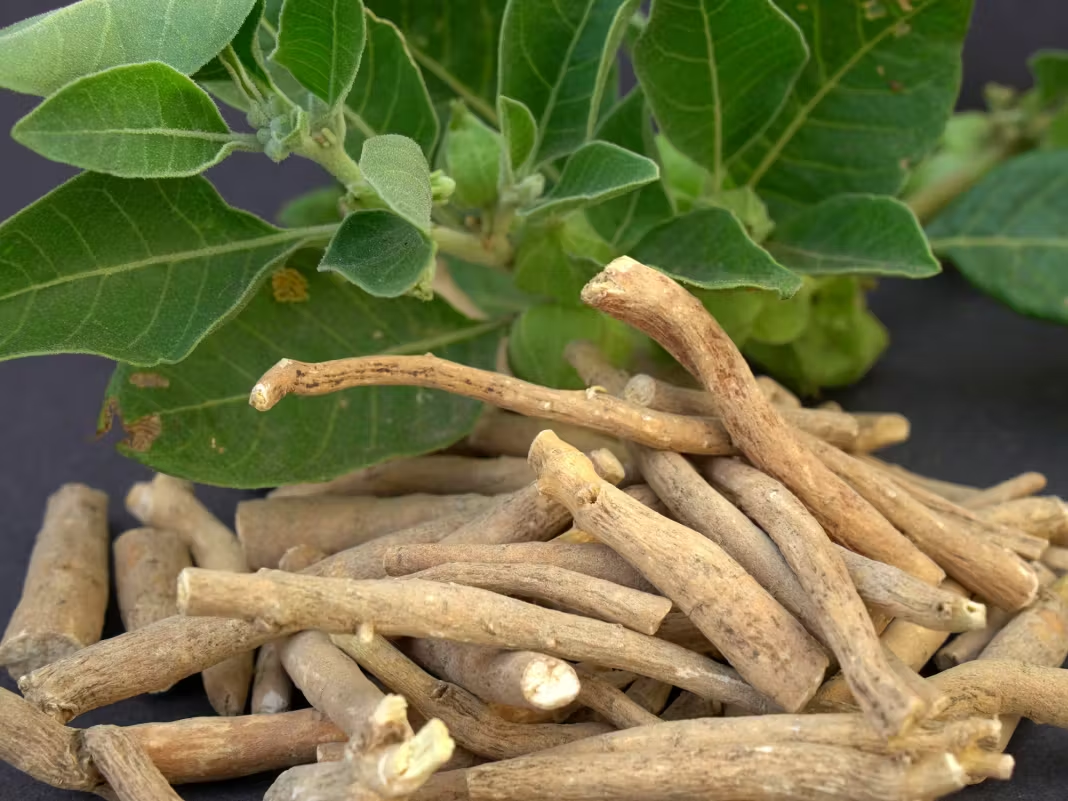
- Adaptogenic Properties: Helps the body cope with stress by regulating cortisol levels.
- Indirect Weight Management: Balancing cortisol can help prevent stress-related binge eating.
Each herb offers a unique advantage. However, some might be more suitable for certain body types or specific conditions. Always remember to discuss with a healthcare practitioner for personalized advice, particularly if you have pre-existing conditions or are on medications.
5. Lifestyle Changes to Enhance the Effects of Herbs

While herbs can provide valuable support in your weight-loss journey, they’re not a magic bullet. For optimal and lasting results, consider the following lifestyle modifications:
- Balanced Diet
- Whole Foods: Emphasize fruits, vegetables, whole grains, lean proteins, and healthy fats.
- Reduce Processed Foods: Minimize intake of sugary snacks, sodas, and refined carbs.
- Portion Control: Even healthy foods can cause weight gain if consumed in excessive quantities.
- Regular Physical Activity
- Cardiovascular Exercise: Aim for at least 150 minutes of moderate-intensity or 75 minutes of high-intensity exercise per week.
- Strength Training: Build muscle mass to boost your resting metabolic rate.
- Everyday Movement: Incorporate more steps by walking, standing breaks, or choosing stairs over elevators.
- Stress Management
- Mindfulness and Meditation: Can lower cortisol levels, reducing stress-related weight gain.
- Adequate Rest: Aim for 7–9 hours of quality sleep per night.
- Relaxation Techniques: Yoga, deep breathing, or hobbies that calm the mind can also help.
- Hydration
- Water Intake: Staying well-hydrated supports efficient metabolism and helps control cravings.
- Limit Sugary Drinks: Instead of soda or fruit juices, opt for herbal teas or infused water.
- Routine and Consistency
- Daily Schedule: Keep consistent meal and sleep times to support hormonal balance.
- Gradual Changes: Rather than overhauling your lifestyle overnight, build sustainable habits that last.
- Monitoring Progress
- Food Diaries or Apps: Tracking what you eat can reveal patterns or triggers for overeating.
- Regular Weigh-Ins or Measurements: Weigh yourself weekly or measure waist circumference to track improvements, but avoid obsessiveness.
- Professional Support: A nutritionist, personal trainer, or health coach can guide you more precisely.
Herbs can amplify your efforts to lose weight naturally, but they work best when integrated into a broader, health-focused lifestyle.
6. Possible Side Effects and Precautions

Even though herbs are natural, they’re not automatically safe for everyone in every dosage. Here are important considerations:
- Allergies
- Some herbs belong to plant families that commonly trigger allergies (e.g., ragweed family). If you know you have plant-based allergies, proceed with caution.
- Watch for symptoms like rashes, breathing difficulties, or swelling of the lips or tongue.
- Medication Interactions
- Blood thinners (warfarin, aspirin), diabetes medications (metformin, insulin), and others can interact negatively with herbal supplements. Always consult your doctor.
- Herbs like ginger, turmeric, and ginseng can have blood-thinning effects, making them risky for individuals on anticoagulants.
- Overconsumption Risks
- Certain herbs, like cassia cinnamon or high-dose green tea extracts, can cause liver toxicity if taken in excessive amounts.
- Diuretic herbs like dandelion or hibiscus may lead to dehydration or electrolyte imbalance if abused.
- Pregnancy and Nursing
- Pregnant or nursing women should be extra cautious; some herbs can stimulate uterine contractions or pass through breast milk.
- Always seek medical advice before introducing new herbs into your regimen during pregnancy or lactation.
- Underlying Medical Conditions
- Those with chronic conditions (e.g., heart disease, thyroid disorders, liver or kidney issues) should seek professional guidance before starting herbal supplements.
- Even healthy individuals should begin with a low dose to assess how their body responds.
- Quality Control
- Choose high-quality herbs from reputable brands, ideally those tested for purity and potency by third-party organizations.
- Look for certifications such as GMP (Good Manufacturing Practice) to ensure product safety.
Herbal remedies can indeed be a valuable tool in your weight-loss arsenal, but knowledge and caution are key to using them safely and effectively.
7. Setting Realistic Expectations
Weight loss is not an overnight process, especially if you’re aiming for a sustainable approach rather than crash dieting. Here are some points to keep in mind:
- Gradual Progress
- Losing 1–2 pounds per week is generally considered safe and sustainable.
- Rapid weight loss methods often lead to regained weight plus additional pounds.
- Individual Variations
- Metabolism, body composition, and genetics differ among individuals, meaning the same herb can yield varied results.
- Experimentation and patience might be necessary to find the perfect herbal blend that works for you.
- Holistic Strategy
- Herbs alone won’t compensate for a chronically high-calorie diet or a completely sedentary lifestyle.
- Combine herbal intake with balanced nutrition, daily movement, and stress management for best results.
- Mental Health Component
- Emotional eating, stress, or depression can derail weight-loss efforts. Counseling or therapy might be needed in parallel with dietary changes.
- Aim to address the emotional roots of overeating, rather than using herbs solely to suppress appetite.
- Long-Term Mindset
- Focus on wellness over quick fixes. Maintaining a stable weight can add years to your life and significantly improve your quality of living.
- Changing habits takes time, but these positive changes are more likely to stick if you do it gradually and mindfully.
Managing expectations and understanding that each individual responds differently is crucial. Many people find that while herbs can jump-start weight loss, the true, lasting success comes from a lifestyle transformation anchored in healthy eating and regular exercise.
8. Frequently Asked Questions (FAQs)
Below are common questions people ask when considering natural herbs for weight loss:
- Can I take multiple herbs at the same time?
- Yes, but proceed cautiously. Some herbs work synergistically, while others could cause adverse effects if combined inappropriately. Consulting with an herbalist or healthcare provider is advised before mixing supplements.
- How quickly will I see results?
- Results depend on various factors like diet, activity level, and metabolic rate. Some may notice minor changes in a few weeks, while for others, it could take a couple of months.
- Are herbal supplements a substitute for exercise and diet?
- No. Herbs should complement—not replace—a healthy diet and regular exercise routine. They’re more like a supportive tool in a broader weight-management plan.
- Can I consume herbs indefinitely?
- Some herbs, like green tea or turmeric, can be safely consumed daily in moderate amounts. However, for potent supplements like high-dose green tea extract or Garcinia cambogia, it may be wise to cycle their usage, giving your body breaks. Consult a healthcare professional for personalized recommendations.
- Do I need to cycle off certain herbs?
- Some weight-loss herbs can lose efficacy over time as the body adapts, or they could cause nutrient imbalances or stress on the liver if taken continuously at high doses. Cycling off them periodically may help maintain effectiveness.
- What if I have a pre-existing condition like diabetes or heart disease?
- Always consult your doctor before starting any herbal regimen, especially if you’re on prescription medication. Herbs like cinnamon, ginger, and fenugreek can affect blood sugar levels, which may require adjustments in your medication.
- Which herb is the best for weight loss?
- There’s no single best herb for everyone. Each herb addresses different aspects of weight management—some boost metabolism, others curb appetite, and some help with water retention. Identify your primary challenge (e.g., hunger, slow metabolism, fluid retention) and choose accordingly.
- Are there any age restrictions for using herbal supplements?
- Children and teenagers have different nutritional and physiological needs. Without medical guidance, it’s generally not recommended for minors to use potent weight-loss herbs. Seniors should also consult professionals to avoid interactions with medications.
- What if I experience side effects?
- Discontinue use immediately and consult a healthcare provider. Side effects might include digestive upset, allergic reactions, or interactions with medications.
9. Conclusion
Rapid weight gain can be an alarming sign that your body’s balance is off. Whether driven by hormonal imbalances, poor dietary choices, or chronic stress, taking a proactive approach is essential for preventing further complications. While conventional weight-loss methods like calorie control and exercise remain foundational, adding natural herbs for weight loss can offer an extra layer of support, addressing issues such as water retention, metabolism sluggishness, and chronic inflammation.
Throughout this guide, we explored:
- The most common causes of rapid weight gain and how to identify them.
- Why natural herbs are a compelling choice for sustainable and holistic weight management.
- A range of popular herbs (green tea, Garcinia cambogia, cinnamon, ginger, turmeric, fenugreek, dandelion, hibiscus, ginseng, cayenne pepper, and more) that may help boost metabolism, curb appetite, or reduce fluid retention.
- Practical ways to incorporate these herbs into your daily life—teas, spices, supplements—while keeping an eye on potential side effects and drug interactions.
- The importance of pairing herbal remedies with lifestyle modifications like a balanced diet, regular physical activity, stress management, and adequate sleep.
Final Thoughts:
No herbal solution can replace a well-rounded healthy lifestyle. Each herb’s effectiveness can vary based on individual factors like genetics, metabolism, and current health status. As you experiment with these herbs, consider consulting a nutritionist, herbalist, or healthcare provider especially if you’re on medications or dealing with underlying health conditions. Monitor your progress, listen to your body’s signals, and make adjustments as needed.
Remember, the journey to a healthier weight is a marathon, not a sprint. By integrating carefully chosen natural herbs for weight loss into a balanced routine and addressing the root causes of rapid weight gain, you’ll be better equipped to reach your goals in a safe, sustainable manner. Here’s to your health and a more balanced life ahead!





